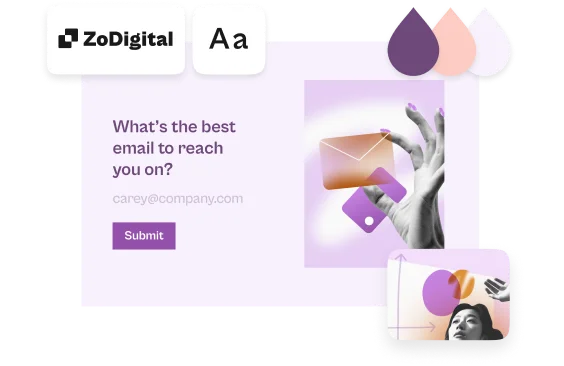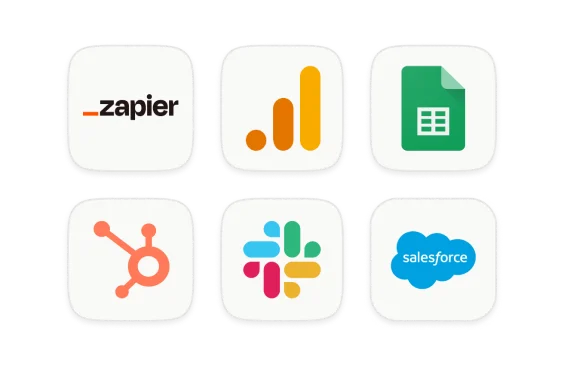Webhooks: Troubleshooting and FAQ
If you’re a developer and you’ve set up your webhooks already, you can find the answers to some of the most common questions asked about this feature here. Read on to find out more.
- Can I modify or add a token to the webhook payload?
- How are Yes/No answers represented in a webhook or response API request payload?
- Why do I sometimes see duplicated webhooks?
- How can I secure my webhooks?
- Why am I getting a "local error: tls: no renegotiation" webhook error?
- Do you support mTLS webhooks?
Can I modify or add a token to the webhook payload?
No, we do not offer any customization or modification to our webhooks.
If you want to add a token or other data to the header or the payload of a webhook, you’ll have to use a Middleware with your own custom function and scripts.
You can do the following:
1. Set up the typeform webhook to send the payload to your own URL or application.
2. Modify or add the data you need using your own code or scripts.
3. Pass this modified data or payload using your own setup to the webhooks service of your database or CRM.
How are answers to Yes/No questions represented in a webhook or response API request payload?
The answer to a Yes/No question is represented as a true or false Boolean value in the webhook or response API payload.
For example:
{
"type": "boolean",
"boolean": true,
"field": {
"id": "HHHNygr5VzSi",
"type": "yes_no",
"ref": "Yes_or_No_Question"
}
},
Why do I sometimes see duplicated webhooks?
To avoid any data loss, we aim to guarantee a delivery at least once a day with our webhooks. Our policy is that it's better to deliver webhooks twice, than not deliver them at all.
When our delivery is not confirmed in due time with an HTTP 200 response code, another webhook will be sent to ensure that your entries are delivered properly.
This can cause some duplicates, but you can identify a duplicate or a re-sent entry by comparing the token sent with your submissions. We're working on making further enhancements to our platform to limit these types of responses, however, to ensure that your submissions reach you, you might still see re-sent submissions.
How can I secure my webhooks?
You might run into a common issue with this feature when you’re trying to test a script without using a real payload.
For this to work, the tests need to be done with the real payload sent to the server and not by copying and pasting the body of the call and testing it somewhere else.
If you’re developing in a local environment, you can use a tool like ngrok to test your script.
Here are some examples you can use to secure your webhooks:
- NodeJS: Glitch
- PHP: Stack Overflow
- Java: CodePile
- Python: CodePile
- C#: Stack Overflow
Please note that these examples are not guaranteed to work and we can't provide support for them. They should be used as general guidelines and adjusted to your application environment.
To avoid a known Java webhooks issue, make sure that your body payload is passed as a string and not as an object. If you pass it as an object or array it will fail.
public void saveFormResponse(@RequestHeader("Typeform-Signature") String signature,
@RequestBody String payload) throws Exception {
userService.saveFormResponse(signature, payload);
}
Why am I getting a "local error: tls: no renegotiation" webhook error?
Due to security reasons, our servers do not allow SSL renegotiation. To get rid of this error, you must remove the renegotiation settings of your webhook URL.
Do you support mTLS webhooks?
No, currently we do not support Mutual TLS authentication for our webhooks.
Why are the answer choices for Dropdown questions not displayed in the 'Recent Deliveries' Payload in the Connect panel?
The 'Recent Deliveries' Payload omits the Dropdown field choices to save database space in our builder, especially for forms with large dropdown lists.
However, the Dropdown field choices will be included in the real payload we send to the designated webhook.
How can I set or modify Block references for the fields of the Matrix, Contact Info, or Address questions?
While it’s possible to set custom Block references for the Matrix, Contact Info, and Address question types, it’s not possible to do so for the individual fields within these questions in the builder.
However, there is a workaround for this using our API. You can modify the references of these fields by using Retrieve form API to obtain the form structure. Then, you can update the references for each field using Update form API.
When someone submits a response to the form, our webhook payload will include these custom references, as shown in the example below of the Contact Info question:
Our Responses API will also provide these custom references, like in the example below:

Why am I experiencing a delay in the delivery of webhooks when I'm collecting video answers with my form?
When your form includes a video question, and your respondent sends you a video answer, the webhooks payload will wait until the transcribed text of the video answer is available and included in the payload. This could slightly increase the time for delivering webhooks.


